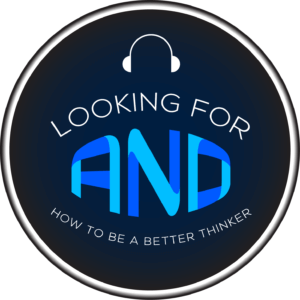I can honestly say that I had some of the best teachers and coaches as a child. All of them took an active role in helping me be a better student, athlete, and person. I can recall lots of praise and encouragement. By the time I was a senior in high school, I was being recruited by colleges to play football. And, several Ivy League schools were knocking on my door.
 I spent a lot of time determining which school would be the best fit and I decided to go to the University of Pennsylvania to earn a degree from one of the best universities in the country and play at a top-notch football program. I felt very confident that this was a good decision and it would set me up for a profitable career, whether it be in professional football or business. And, while I am still thrilled with my decision to go to Penn, I have to admit that I entered a very confident 18-year old student-athlete and I left with a great degree, good friends, but my confidence was shot…
I spent a lot of time determining which school would be the best fit and I decided to go to the University of Pennsylvania to earn a degree from one of the best universities in the country and play at a top-notch football program. I felt very confident that this was a good decision and it would set me up for a profitable career, whether it be in professional football or business. And, while I am still thrilled with my decision to go to Penn, I have to admit that I entered a very confident 18-year old student-athlete and I left with a great degree, good friends, but my confidence was shot…
What I learned over the last couple of years is that I had a “fixed mindset.” Dr. Carol Dweck, professor of psychology and author of Mindset: The New Psychology of Success, describes someone with a fixed mindset as a person who believes their personal attributes cannot be changed. In my case, I thought that my intelligence and athletic abilities were something passed along to me by my parents and were immutable. I was told I was “smart” and “athletic.” Dweck’s research shows that people with fixed mindsets run into trouble when things get tough. I began to tell myself that I must not be smart after not receiving straight A’s my first semester at Penn. And, because I did not excel on the football field as I had hoped, I began to doubt my athletic abilities. In the end, I actually put less effort into my studies and football, thinking that my “immutable” intelligence and athletic prowess could not be improved to meet the challenges before me.
Dweck’s research, however, revealed the existence of the “growth mindset.” People who think in this manner, attribute  their success to hard work. They tend to see setbacks as learning experiences and opportunities to grow. They are more resilient. If they don’t make their sales goals or the project they are leading fails, they go back to the drawing board to find out what went wrong. Now, when confronted with failure, I consider my effort, my situation, and the input of others. I take a more realistic view to learn from it.
their success to hard work. They tend to see setbacks as learning experiences and opportunities to grow. They are more resilient. If they don’t make their sales goals or the project they are leading fails, they go back to the drawing board to find out what went wrong. Now, when confronted with failure, I consider my effort, my situation, and the input of others. I take a more realistic view to learn from it.
Dweck has a short, assessment in her book but if you’re interested in determining your mindset, now, the following questions will give you a hint as to where you stand.
- When do you feel smart? Is it when you are “flawless” or when you are learning?
- What do you say to yourself when reach a major goal? Do you think about the hard work that got you there? Or, do assume it was your innate skills or intelligence?
- Do you embrace risk and challenges? Or, do you immediately worry about how others will view you if you fail?
In later posts, we’ll explore how these two mindsets play out in the workplace for leaders, managers, individuals, and teams. So, what is your mindset?


